The Outlook For Brand Success In The Digital Age
- Skye Lee
To reflect on the first article that deliberated on digitalization, consumer purchase funnel has been the primary subject matter since it’s rooted in such a prevailing free market economy. It has been the universal goal of each marketer to attain AWARENESS at the very least, to partake in the consumer journey as per illustrated in the purchase funnel – and hence this explained why it is such a crucial marketing process that companies establish their very own brand identity in order to be recognizable from the rest of the competitions.
The Ultimate Success Of Brand Building
Although the underlying concept of brand building is to be recognizable as well as distinguishable, a brand would consider itself achieved the ultimate success that is beyond loyalty, when it earned the authority in specific subject matter and attained top-of-mind in every household that even have its brand popularized as verb in consumer’s daily life. Think about the following everyday scenarios:
- When you want to search for information on internet: You Google it.
- When you want to check out a video online: You Youtube it.
- When you want to make a long-distance call: You Skype it.
- When you want to edit a photo: You Photoshop it.
The brand itself had represented an action to be carry out; a phrase that consumer associate with when they want to accomplish a task. Some brands have even replaced the original words of a subject for being the generic term of the subject, i.e.
- Ping Pong became the generic term for table tennis.
- Pampers became the generic term for disposable diaper.
- Tupperware became the generic term for food-storage container.
- PowerPoint became the generic term for presentation program.
These are the euphoria state of brand success that not only surpassed the visibility and loyalty milestones, it had also attained top-of-mind association when it comes to fulfilling consumer needs.
The Astounding Rewards Of Positive Brand Equity
According to the father of modern branding David Aaker, these are the 3 components i.e. brand awareness, brand loyalty & brand association that sum up the invaluable brand equity, which are a set of assets or liabilities that will add or subtract from the value of a current or potential product or service driven by the brand. As Investopedia put it, brand equity has a direct effect on sales volume because consumers gravitate toward products with great reputations. For example, when Apple releases a new product, customers line up around the block to buy it even though it is usually priced higher than similar products from competitors. One of the primary reasons why Apple’s products sell in such large numbers is that the company has amassed a staggering amount of positive brand equity. Some other astounding rewards due to strong brand equity are as follows:
- The acquisition of Gillette Company by Proctor and Gamble in 2005 with the purchase price of $57 billion which was 19 times Gillette’s earnings before interest, taxes, and depreciation. The value and perceived future earnings of the brands acquired in the deal – Gillette, Duracell, Braun and Oral-B played a large part in the determination of the purchase price.
- In 2000, Unilever paid $24 billions to American Bestfoods to own the famous brands namely Hellman’s Mayonnaise and Knorr Soups, which at that time was worth 2.5 times of the sales revenue.
- In 2010, Coca-Cola paid Dr Pepper Snapple Group $715 millions for the right to sell Dr Pepper branded drinks namely Schweppes, Canada Dry, C’Plus, Dr Pepper and Diet Dr Pepper.
While we have all the explicit cases that demonstrated brand equity is the relative determinant for retail market dominance, where the market consumption of consumer goods are all in favor of products that earned strong brand equity – what would be the equivalent determinant to dominate consumption in this digital age?
Where Is The Go-To Digital ‘Marketplace’?
- The marketer – specifically the digital contents creators that supply contents in web page form on Google search engine by means of ‘selling’ or rather appropriately put – promoting their web contents to be consumed by digital users.
- The consumer – specifically the digital users who demonstrate the need to consume digital contents by initiating Google search.
Domain Authority: The Equivalent Of Brand Equity In The Digital Age
To figure out how to become a successful marketer on Googe.com we first need to internalize Google’s mission.
Our company mission is to organize the world’s information and make it universally accessible and useful. – About.google
Google would always reward websites that are aligned with their mission (that serve USEFUL information to the audience), with traffic where the users visit the website to consume the contents. The yardstick of marketing success on Google.com boils down to ranking position (for keywords that are relevant to your website) – due to the fact that there are more than 99% of search traffic goes to websites that ranked on first search engine result page.
“In fact, only 0.78% of Google searchers clicked on something from the second page.” – Backlinko.io, Google organic click-through rate analysis
Top 5 ranking for ‘brand equity’ keyword search on Google.com
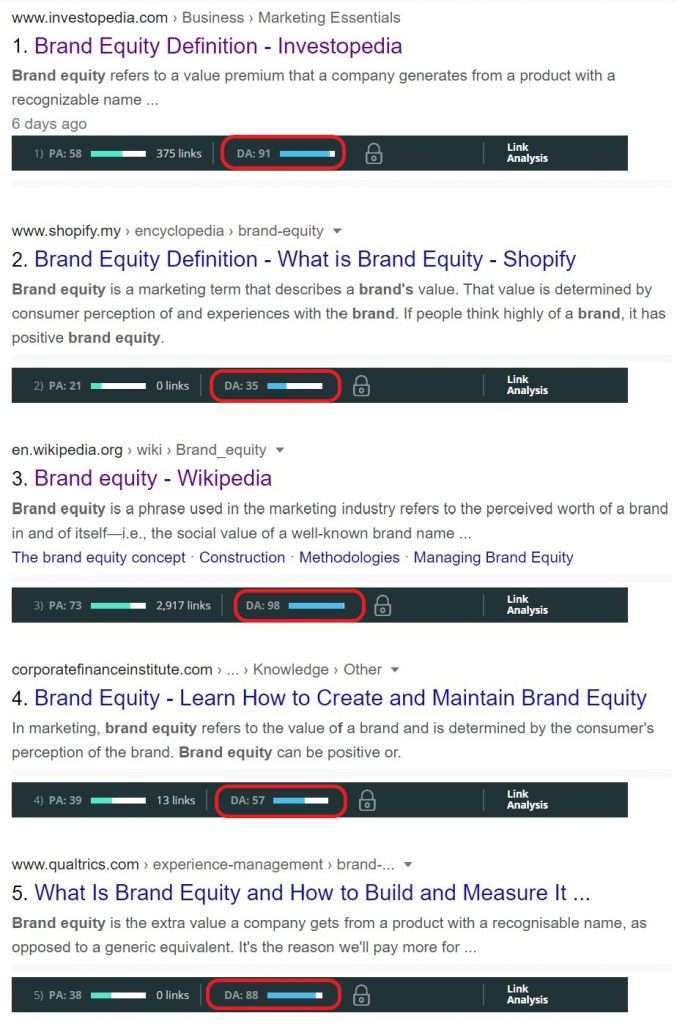
Top 5 ranking for ‘domain authority’ keyword search on Google.com
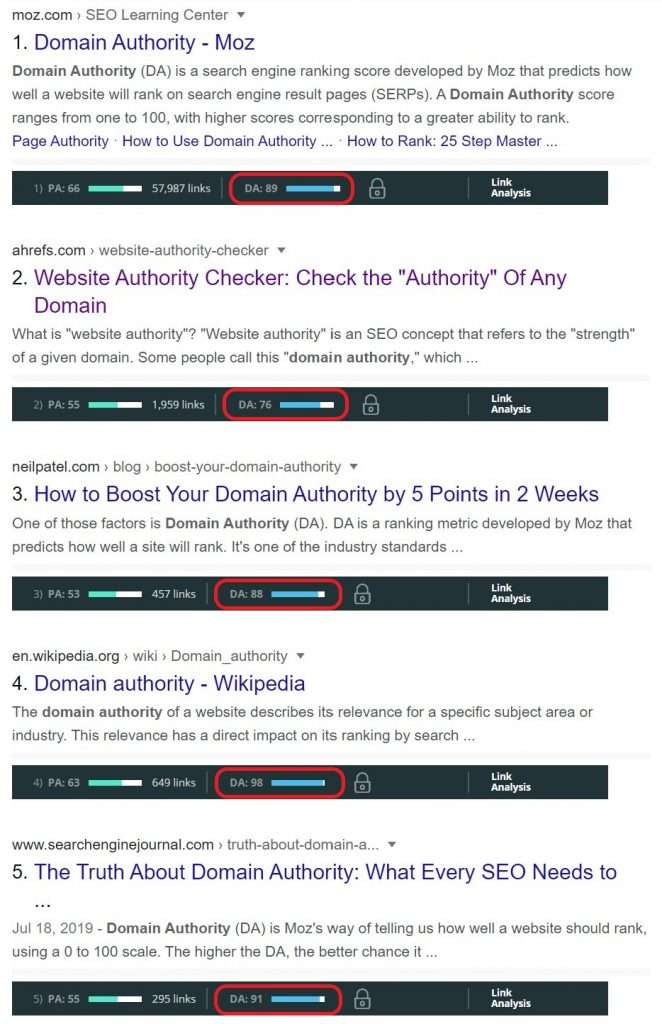
Top 5 ranking for ‘domain ranking’ keyword search on Google.com
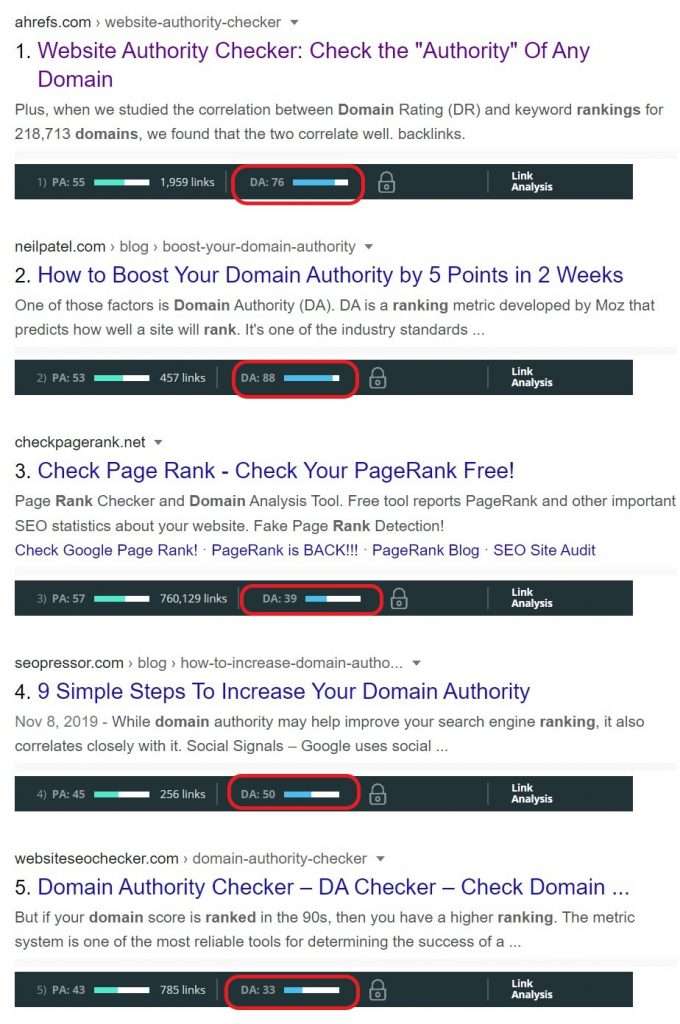
- Driving traffic via back links from high-authority sites which are regarded by users as the thought leader in respective subject areas, which have earned relatively high DA as a result.
- Minimalize traffic from spammy sites that coincide with your website niche or designed to deceive search engine and users (more guideline about link scheme can be found here).
- Drive traffic from legitimate sites with relevant traffic. Although this is inter-related with the above on minimalizing traffic from spammy sites, it is also crucial to associate relevant and useful links from external sites even those legitimate ones.
In retrospect, these factors essentially attributed to the components of brand equity, i.e.
- Awareness – the existence of your domain (website) is the very first step in building visibility on Google.com search result.
- Loyalty – the authoritativeness of your domain that resulted from user loyalty & trust towards your domain.
- Association & perceived quality – the relevancy of your domain’s content to user’s needs, and the authenticity of your domain along with external sites that associate with your domain.
Market Entry Advantage Due To Established Domain Authority
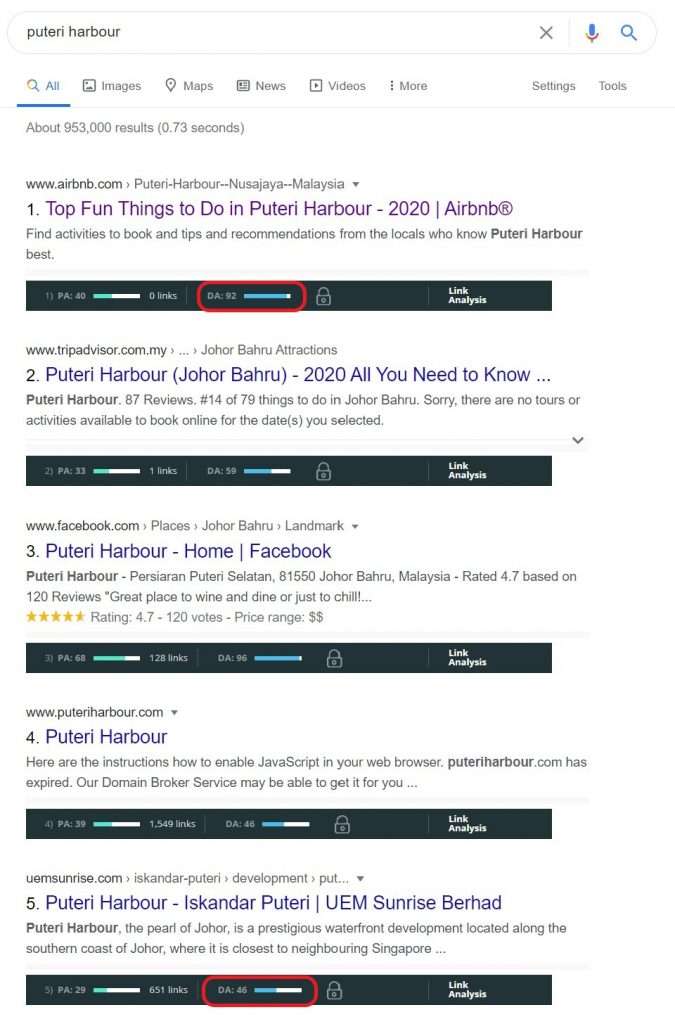
As the result shows, the top ranked webpage for ‘puteri harbour’ keyword search is a webpage from Airbnb.com, that has scored 92 in domain authority. Whereas #5 in ranking is a webpage from uemsunrise.com that scored 46 domain authority. Variance of domain authority score aside, let’s find out when were these 2 webpages from respective domains first published on Google.com.
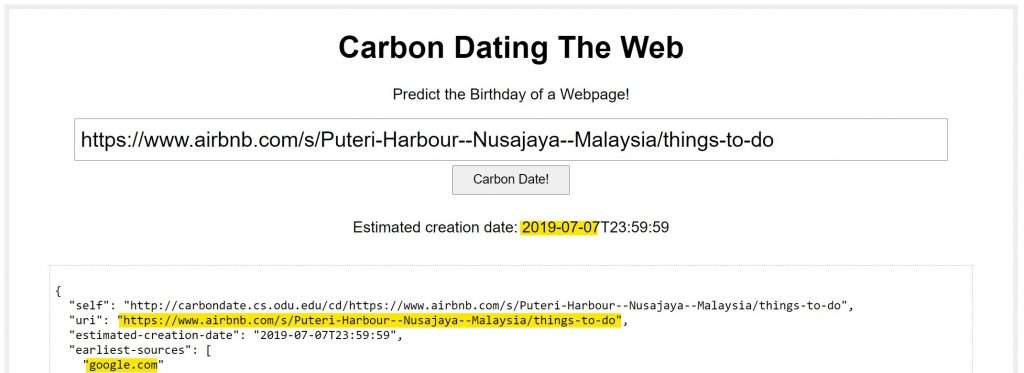
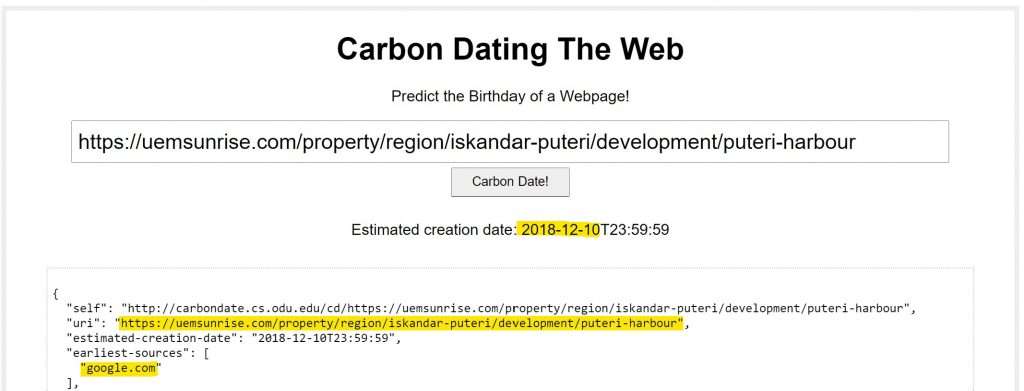
Final Thoughts

Skye Lee
Growth Marketer | Digital Marketing Specialist | Digital Evangelist | Data Driven Marketer | Tech Startup Marketer | HRDC Certified Trainer

